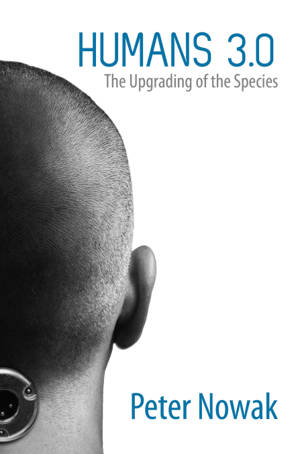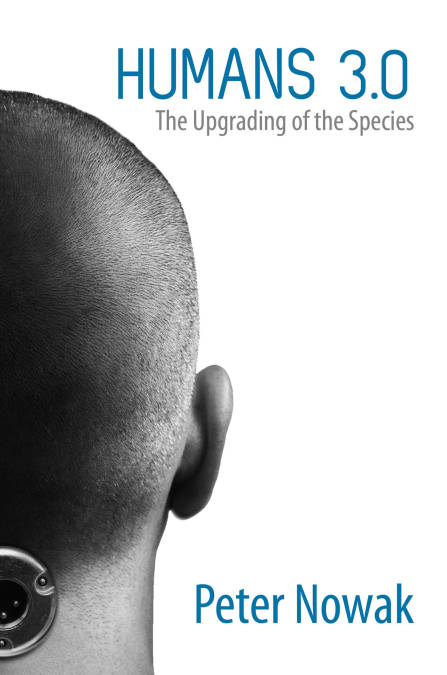
- Afhalen na 1 uur in een winkel met voorraad
- Gratis thuislevering in België vanaf € 30
- Ruim aanbod met 7 miljoen producten
- Afhalen na 1 uur in een winkel met voorraad
- Gratis thuislevering in België vanaf € 30
- Ruim aanbod met 7 miljoen producten
Zoeken
Omschrijving
Welcome to Human 3.0.
Life for early humans wasn’t easy. They may have been able to walk on two feet and create tools 4 million years ago, but they couldn’t remember or communicate. Fortunately, people got smarter, and things got better. They remembered on-the-spot solutions and shared the valuable information of their experiences. Clubs became swords, caves became huts, and fires became ovens. Collectively these new tools became technology. As the 21st century unfolds, the pace of innovation is accelerating exponentially. Breakthroughs from robotics to genetics appear almost on a daily basis. It’s all happening so quickly that it’s hard to keep track – but recently there’s been a shift. We used to create technology to change the world around us; now we’re using it to change ourselves. With vaccinations, in-vitro fertilization, and individual genetic therapy, we’re entering a new epoch, a next step, faster and more dramatic than the shift from Australopithicines to Homo Sapiens. The technology that set us apart from our earliest selves is becoming part of the evolutionary process. Advancements in computing, robotics, nanotechnology, neurology, and genetics mean that our wildest imaginings could soon become commonplace. Peter Nowak deftly presents the potential outcomes—both exciting and frightening—of key, rapidly advancing technologies and adroitly explores both the ramifications of adopting them and what doing so will reveal about the future of our species. We’ve come a long way in 4 million years. Welcome to Human 3.0.
Life for early humans wasn’t easy. They may have been able to walk on two feet and create tools 4 million years ago, but they couldn’t remember or communicate. Fortunately, people got smarter, and things got better. They remembered on-the-spot solutions and shared the valuable information of their experiences. Clubs became swords, caves became huts, and fires became ovens. Collectively these new tools became technology. As the 21st century unfolds, the pace of innovation is accelerating exponentially. Breakthroughs from robotics to genetics appear almost on a daily basis. It’s all happening so quickly that it’s hard to keep track – but recently there’s been a shift. We used to create technology to change the world around us; now we’re using it to change ourselves. With vaccinations, in-vitro fertilization, and individual genetic therapy, we’re entering a new epoch, a next step, faster and more dramatic than the shift from Australopithicines to Homo Sapiens. The technology that set us apart from our earliest selves is becoming part of the evolutionary process. Advancements in computing, robotics, nanotechnology, neurology, and genetics mean that our wildest imaginings could soon become commonplace. Peter Nowak deftly presents the potential outcomes—both exciting and frightening—of key, rapidly advancing technologies and adroitly explores both the ramifications of adopting them and what doing so will reveal about the future of our species. We’ve come a long way in 4 million years. Welcome to Human 3.0.
Specificaties
Betrokkenen
- Auteur(s):
- Uitgeverij:
Inhoud
- Aantal bladzijden:
- 300
- Taal:
- Engels
Eigenschappen
- Productcode (EAN):
- 9780008113384
- Verschijningsdatum:
- 18/01/2015
- Uitvoering:
- E-book
- Beveiligd met:
- Adobe DRM
- Formaat:
- ePub

Alleen bij Standaard Boekhandel
+ 6 punten op je klantenkaart van Standaard Boekhandel
Beoordelingen
We publiceren alleen reviews die voldoen aan de voorwaarden voor reviews. Bekijk onze voorwaarden voor reviews.








